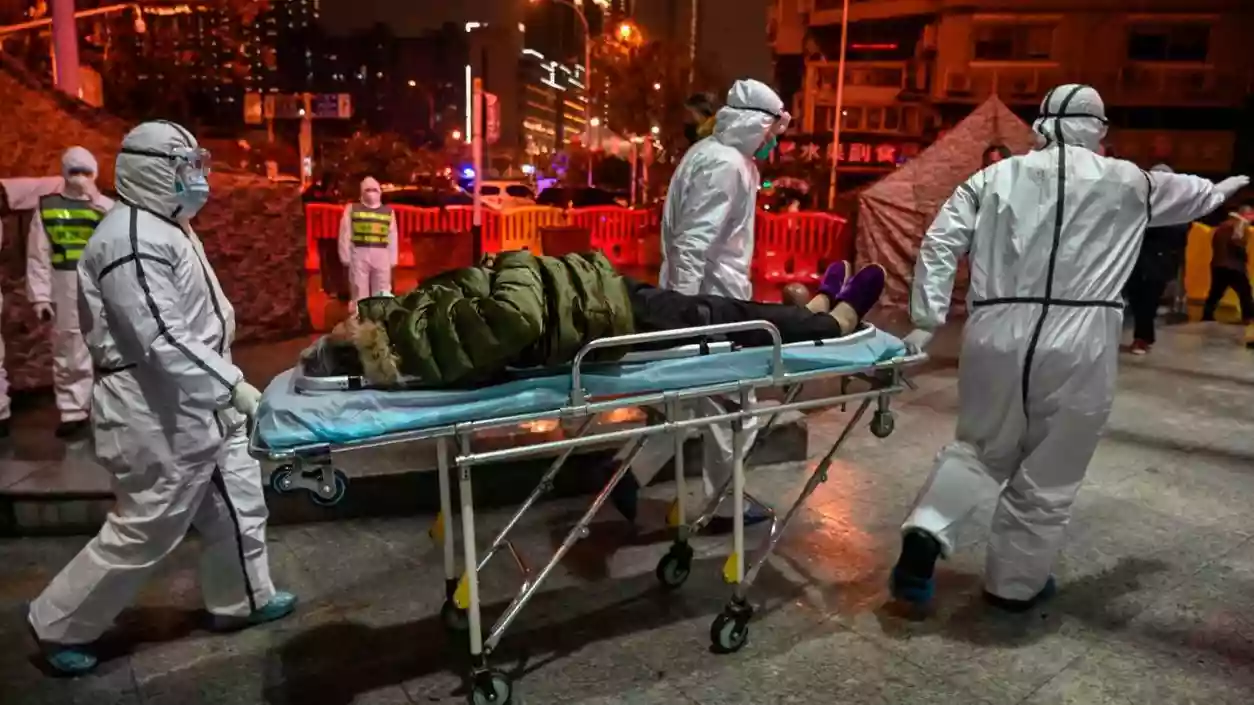Mamata calls urgent meeting at Nabanna tomorrow, key administrative officials to attend
.gif)
.gif)

China is currently experiencing a significant surge in cases of human metapneumovirus (HMPV), particularly in northern provinces, with an increased number of infections among children under the age of 14. As of December 2024, the rise in HMPV cases has placed considerable strain on hospitals, especially pediatric care facilities, which are reporting higher numbers of patients with severe respiratory conditions, including pneumonia. Along with HMPV, other pathogens such as influenza A, Mycoplasma pneumoniae, and rhinovirus are also circulating, further compounding the situation.
HMPV is an RNA virus that belongs to the Pneumoviridae family, discovered in 2001. The virus is responsible for causing respiratory infections that affect both the upper and lower respiratory tracts. Symptoms include cough, fever, nasal congestion, shortness of breath, and wheezing. In more severe cases, HMPV can lead to complications such as bronchitis, pneumonia, and exacerbation of asthma, particularly in vulnerable groups like young children, older adults, and individuals with weakened immune systems. The incubation period for HMPV is typically between three and six days, with symptoms usually appearing within this window after exposure.
In response to the surge in HMPV cases, the Chinese government has implemented a pilot monitoring system for pneumonia of unknown origin. The system is designed to provide early detection and coordinated responses to respiratory diseases, improving upon the lessons learned during the COVID-19 pandemic. The monitoring protocol involves enhanced surveillance, reporting, and verification of unusual pneumonia cases across medical facilities. Laboratories, hospitals, and public health agencies are now required to share data quickly, enabling rapid identification of emerging pathogens and ensuring that health authorities are informed of any new or unusual disease patterns.
There is currently no specific antiviral treatment or vaccine available for HMPV. As such, treatment primarily focuses on symptom relief. Over-the-counter medications such as acetaminophen and ibuprofen are commonly used to manage fever and discomfort. For more severe cases, particularly those involving pneumonia or bronchitis, patients may require hospitalization for oxygen support or respiratory therapy. Although antibiotics are not effective for viral infections like HMPV, they may be used to treat secondary bacterial infections if present. Antiviral medications specifically targeting HMPV are not recommended, as the virus typically resolves with supportive care.
Health authorities have issued several preventive recommendations to curb the spread of HMPV. These include wearing face masks in crowded public spaces, practicing frequent handwashing with soap and water, avoiding touching the face, maintaining physical distance from individuals showing symptoms of respiratory infections, and ensuring proper ventilation in indoor environments. People experiencing symptoms such as fever, cough, or difficulty breathing are advised to stay at home to reduce the risk of transmission. In addition, public health experts emphasize the importance of vaccination against other respiratory pathogens, such as influenza, to reduce the overall burden of respiratory illnesses during the winter months.
According to the latest data, between December 16 and 22, acute respiratory diseases, including HMPV, have shown an upward trend. The majority of reported cases are in children under 14, a group particularly susceptible to respiratory infections. Although there have been no reports of a formal state of emergency, health officials are closely monitoring the situation and remain on alert for any further spread of the virus. The increased incidence of respiratory illnesses this winter, along with rising HMPV cases, has prompted health authorities to continue advocating for vigilance, especially given the heightened risk of additional viral infections during the colder months.